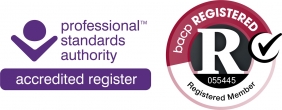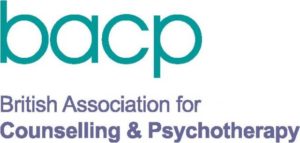Deaf counselling can help you reach your full potential
Mental health issues can affect everyone. From relationship problems to work stress, we all have stress and anxiety to deal with. However, some of us need a bit more support navigating the complexities of living in a hearing world.
Unfortunately, deaf counselling is still very rare; there are very few deaf-aware and qualified counsellors available.
To answer our counselling questions we interviewed deaf counsellor, Adrian Francis, a specialist in person-centred counselling. Person-centred counselling functions from the belief that people have the natural tendency to develop towards their full potential.
Adrian helps clients explore issues that have impacted them in a very safe, non-judgemental environment. If their concerns do not fall within his expertise, he refers them to another therapist associated with that particular field of psychotherapy.
Adrian’s goal was to become a counsellor for people with hearing loss, any hearing loss, with or without speech. He has now been counselling for about 6 years with some clients able to hear and others using lip reading or BSL as their primary method of communication. His 4 areas of specialisation include:
An interview with a deaf counsellor – Adrian Francis
What is deaf counselling?
Counselling is basically a talking therapy which is held in a safe environment. Clients are helped to explore what their issues are and empowered to find ways to reach their desired outcomes and aspirations.
The only difference with deaf counselling is that the counselling process is adapted to suit the hard of hearing person’s choice of communication.
What issues do deaf clients generally come to you with?
Many seek counselling because they feel depressed, or have a feeling of being ‘stuck in a rut’. They rarely look at the underlying reasons for such feelings, which is where counselling comes in. The underlying reasons are usually due to:
• Isolation, because of their hearing loss they don’t feel included in day to day life or
• Their limited ability to communicate or convey their feelings. They have difficulty articulating themselves and making themselves heard.
A good deaf counsellor uses visual mediums, like drawing, writing, and playdoh, to help deaf people convey how their lifestyle has been impacted, and to explore their emotions.
Counselling helps create coping strategies and tools that enable and empowers them to work through their feelings and avoid relapsing.
Signs that you might need a counsellor
Many times your friends and family or colleagues will be the first to notice changes – in your appearance, mood swings, or losing interest in things you’ve previously found pleasurable.
Once this happens many hard of hearing individuals first go to their GP. The problem comes in when they try to communicate and express their feelings. Often a GP will give you a subscription for anti-depressants without first recommending counselling.
How do I tell someone that they might need counselling?
Approach it in a sensitive and caring way. The first thing you need to do is show them that you care and support them. Secondly, it’s important that they know they’re not alone, there is help out there.
Tell them there’s no shame in reaching out. When your car breaks down, you go to a mechanic, if you have a toothache you go to the dentist, similarly when you are struggling with mental health issues you should see a counsellor.
How do I determine what type of counselling I need?
A first step would be to go online and search for the specific problem you’re concerned with, for example, counselling for depression. Then look for the counsellor that offers a free consultation and ask questions concerning the counsellor’s experience in dealing with your particular concern.
If they do not have the credentials to help you with your problem, they should refer you to another counsellor who specialises with that particular concern. The 30-minute free session should also provide insight into whether or not you would feel comfortable sharing your journey with that counsellor. An initial consultation is key.
If you are a BSL user, ideally you want a deaf counsellor that has achieved at least a level 3 BSL training. Meaning, they need to understand and use varied BSL with clients at different BSL levels.
What can you expect from the counselling process?
You can expect a safe environment where you are encouraged to discuss any concerns without fear of judgement. You can expect anything you say to remain confidential between you and your counsellor.
However, it is your responsibility to tell the counsellor what outcome you want to achieve at the end of your journey. You need to make it clear what results you expect and convey all your concerns. In turn, the counsellor will tell you how realistic such expectations are and if that is within their area of expertise.
Counselling is a relationship. Both parties need to be aware of the intended goal in order to achieve the desired result.
You can also expect to receive homework after each session. Unlike school homework, these tasks are simple mental exercises you can do while making a cup of tea or when you’re getting ready for bed.
Counsellors will encourage you to actively implement the tools and strategies you have learned in your day-to-day life. You want you to be mindful of your emotions and at the end of the day reflect on that, perhaps note them down and discuss those feelings in your next session.
How long does counselling last?
There is no magic number. Your counsellor cannot tell you how many sessions it will take to alleviate the stress, anxiety or depression you might be feeling. When conveying your particular issue to the counsellor, you might not be aware of the underlying reasons for that issue, and that can potentially lead to the need for more sessions.
Also, as a deaf or hard of hearing person, it can take twice as long to clearly convey what you mean. Especially if you are accompanied by a third person acting as your interpreter for a hearing counsellor.
Typically, many deaf people participating in counselling only let their guard down after the 10th session, and that’s when they really start to open up and be vulnerable.
Counselling is a long-term investment.
Does counselling work for everybody?
As long as the relationship between you and your counsellor is compatible, and your counsellor has the required credentials and can make you feel empowered and heard then counselling has the potential to work for everyone.
However, you have to be proactive and open yourself up to change. The counsellor gives you the tools; it’s up to you to implement them and transform your life.
If you keep a barrier up and remain distant, then counselling will not work for you.
How much does counselling cost?
The cost of counselling is dependent on the number of sessions required and where you live. Sessions can range anywhere from £10 to £70. It is possible to get counselling free of charge when referred by your doctor or the NHS.
How to contact Adrian
Getting in touch is the first step to getting the help you need.
You can email Adrian Francis at info@afranciscounselling.co.uk or visit his website The Deaf Counsellor.
Trackbacks & Pingbacks
-
[…] and colleagues have stopped inviting you and you’re alone all the time. You may want to consider deaf counselling to help you reach your full […]
-
[…] READ MORE […]
Leave a Reply
Want to join the discussion?Feel free to contribute!







This is great Adrian. You have clearly highlighted the need for counseling and especially to the Deaf. more Deaf are required in this counseling field. you are a good role model; mentor more of your like
Keep up the spirit…